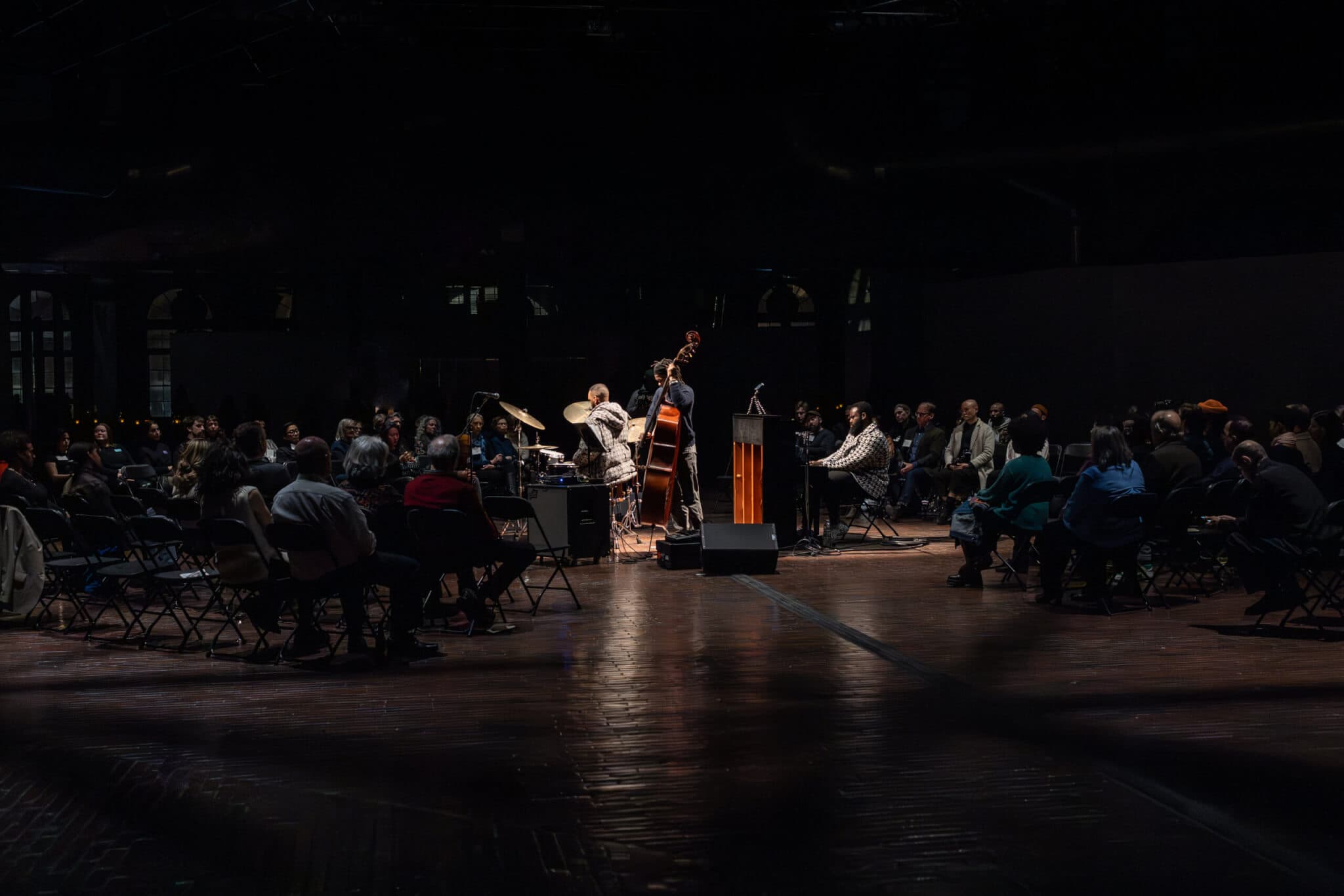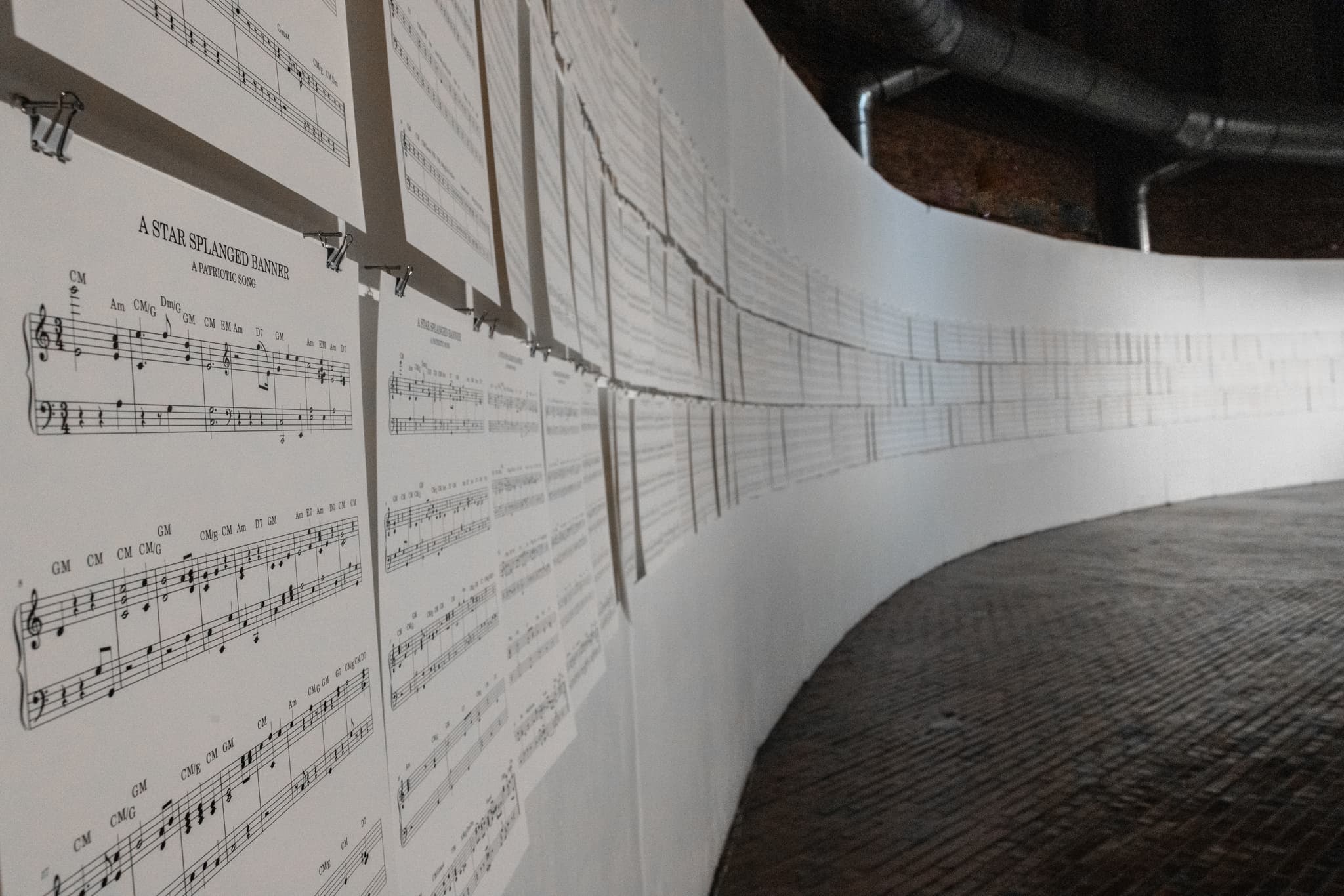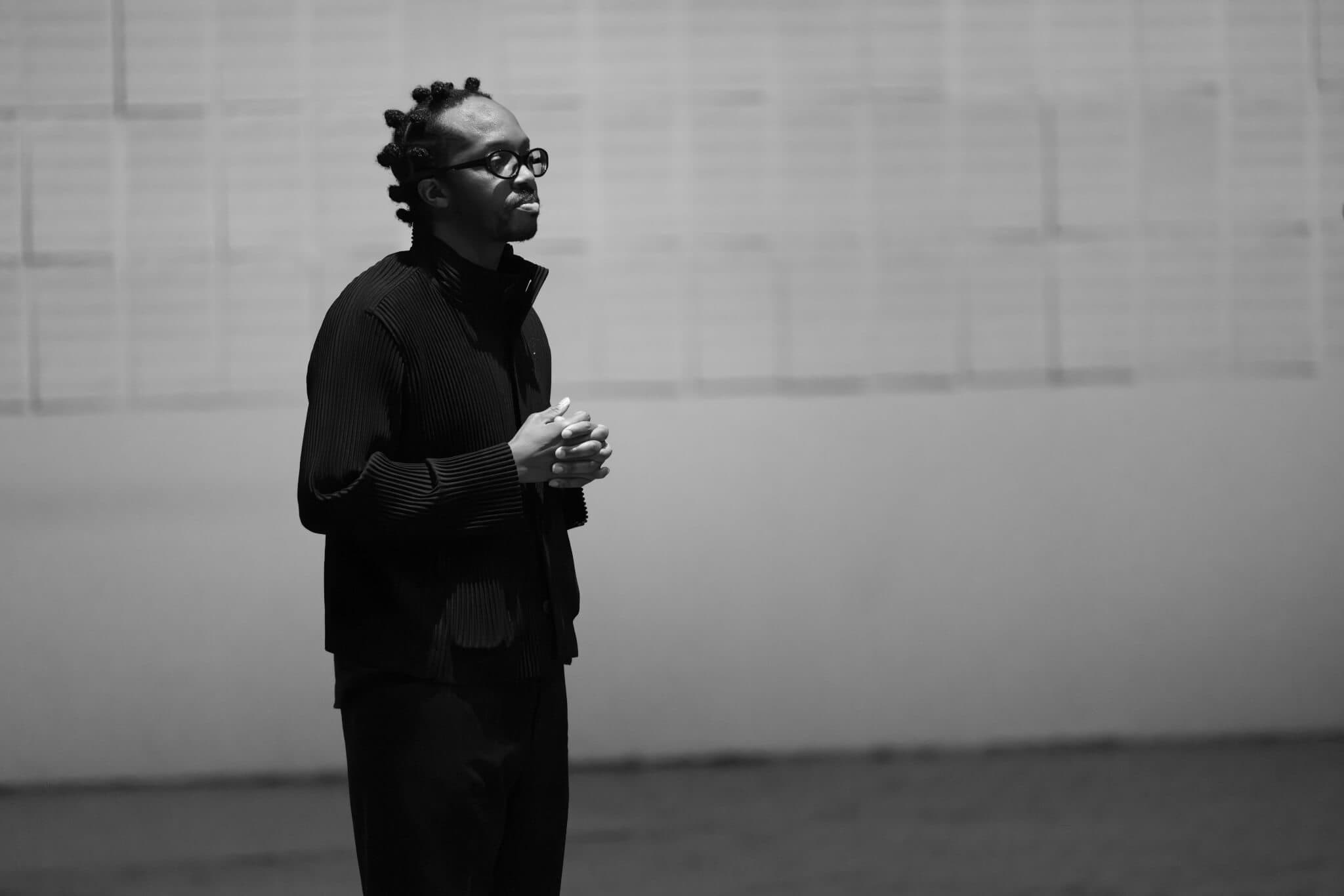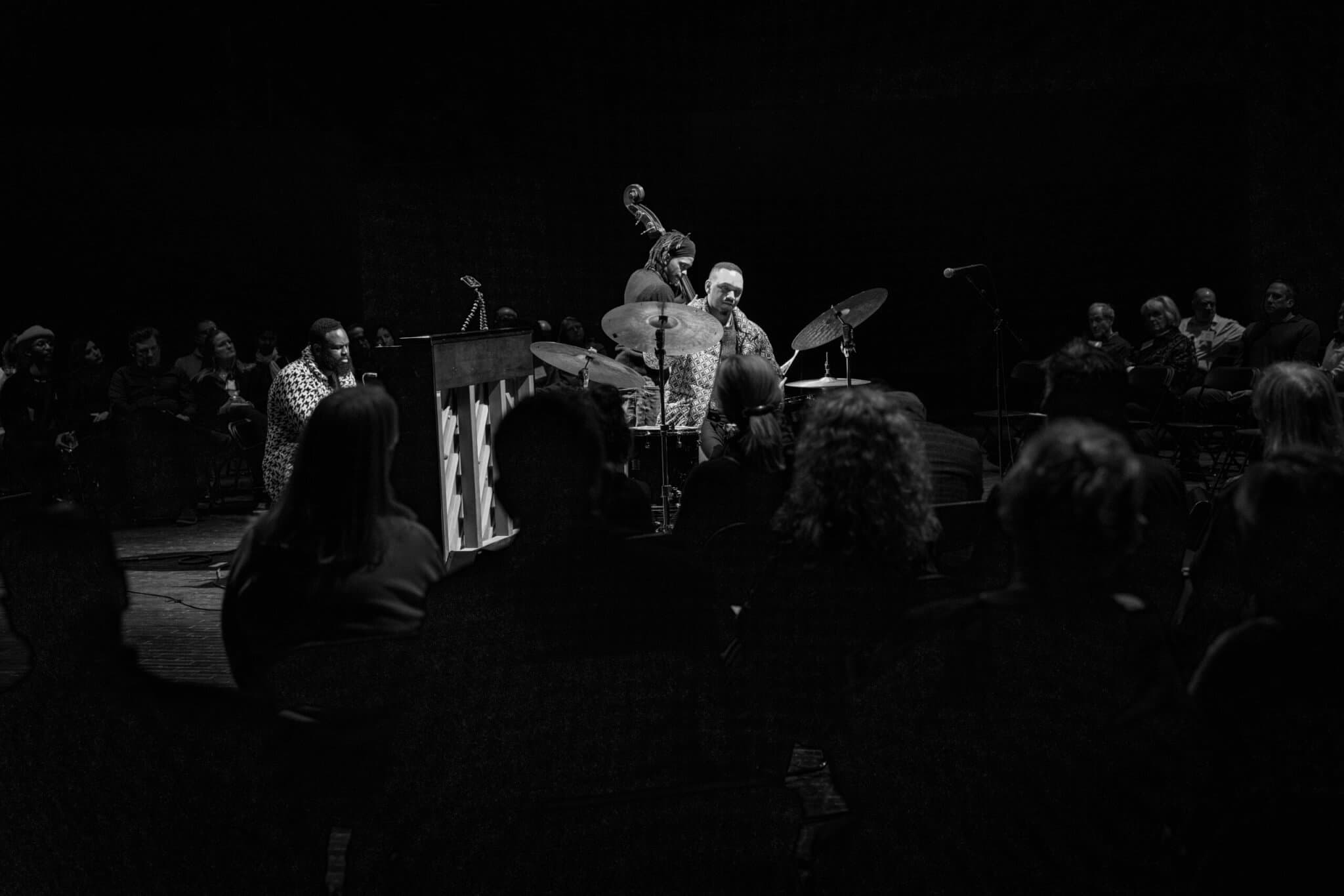Inside the Cyclorama building of the Boston Center for the Arts (BCA) on a Monday night before a storm, four diagonal groups of chairs were arranged around a drum kit, an upright bass, and a piano. The instruments were positioned such that each one faced a different section of the audience—all of us somewhat intimately close to each other relative to the vastness of the room. From where I was seated in front of the upright bass, I couldn’t see the piano keys, or the person behind them. Without any introduction—or accompanying musicians—pianist James Francies began to play.
It was the melody of the “Star-Spangled Banner.” Familiar and sweeping, but this time, swift and repetitive. Soon, dissonant notes began to sneak into the song as it started over and over again. The melody increasingly sounded strange, the pianist always just barely missing the intended notes.
Eventually the song was completely tripping and falling over itself. I began to hear what sounded like fingers jammed down on keys, pressing and shifting. Then, after repeating fourteen times, the song ended.
This is Boston- and Brooklyn-based artist Ekene Ijeoma’s “Deconstructed Anthems: Massachusetts,” the newest edition of his traveling, site-specific installation featuring a composition that sonifies local and national data on racial disparities and mass incarceration from 1925 to 2017. The piece will be performed each evening until Saturday, February 17, five times in total. Ijeoma waited until the end of the show to share with us that he had created an algorithm through which he programmed the piano to withdraw notes (resulting in keys being held down by the instrument) to reflect increasing incarceration rates that disproportionately affect Black communities. Some audience members who could see the piano thought that it was broken. But by the end we realized we were actually hearing the pianist improvise the melody over and around keys that were rendered useless in real time.
While “Deconstructed Anthems” was first presented in 2017, the performance inside the Cyclorama was the piano’s debut after five years of Ijeoma’s research. The piece required Ijeoma to create software to generate the algorithmic composition and a custom player piano system embedded with the composition. The altered instrument resounded in a space that was originally built in 1884 to display a panoramic painting of the Battle of Gettysburg. Now, hundreds of versions of Ijeoma’s software-generated sheet music cover the walls, destabilizing such narratives of American progress—and particularly the North as the cradle of liberty. Wherever he goes, Ijeoma calls in local musicians to perform his compositions; they inflect the music with their lived experiences and relationships to place.
To Ijeoma, the US national anthem—which is to say, the United States of America itself—has always sounded dissonant. Claims of being “the land of the free” have always coexisted with Black enslavement in all its forms and the precarity of Black life. The removal of notes, then, not only distorts the song enough to create a new melody, but reveals a truer version of it from inside the melody itself. As Ijeoma noted in Complex, “it’s the same song.”
In Ijeoma’s work, Black life does not end easily. The keys make a sound when they go down, and when they remain silent, they are still felt: an alternate melody coexisting at the backside, on top of, or under the anthem. The keys that are “stuck” become irreverent, insurgent. The pianist stumbles over them as the notes refuse to make noise at the rhythm and desire of the anthem. The player attempts to play over the fallen keys, but they keep going down in surprising places. However, the fact that they will disappear is no surprise given the nature of Ijeoma’s algorithm. Black death, slow and fast, is by design in this country, and in this state. It is in the “risk” assessments of children in schools; it is in the literal and metaphorical algorithms used to sentence people in the carceral system. Yet, in Ijeoma’s composition, the algorithm turns on itself and begins to glitch. Black people look back. They are in/visible, playing in the dark. They refuse to disappear completely; the pianist must play their song. And then so many are held down that the seemingly never-ending melody must stop.
And begin again.
The discordance of the national anthem sounded like living within empires. It feels like business as usual during genocide in Palestine, DR Congo, Sudan. Ijeoma’s work asks us to listen, to attune our ears to the violence and absurdity around us. Hear the current police raids of Atlanta’s Stop Cop City activists’ homes, all too reminiscent of the late-1960s FBI attacks on Black Panther Party members. Listen to the displacement of Boston’s Black communities, to the rupture of our Black families when a loved one is incarcerated. Yet also feel and remember the instability of empires near and far. And rehearse to create a new song.
Bassist Will Mabuza and drummer Jeremy Dutton joined afterward for a few more songs, quickly improvising in jazz with numbers like “Lift Every Voice and Sing,” which is often referred to as the Black national anthem. Dutton often closed his eyes as he made the rhythm. I wonder where he goes.
Ekene Ijeoma’s “Deconstructed Anthems: Massachusetts” remains on view at the BCA Cyclorama at 539 Tremont Street through Friday, February 16. The trio James Francies (piano), Jeremy Dutton (drums), and Will Mabuza (bass) will perform from 7 to 8 PM each night, joined by special guest Angel Bat Dawid on February 15. The piano will play solo throughout the afternoon. Free tickets are available here.




